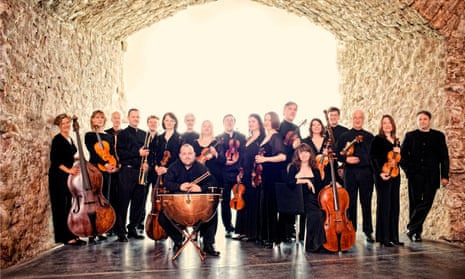The last of the Academy of Ancient Music’s concert-hall stagings of Monteverdi’s operas at the Barbican had an extra, melancholy dimension. The performance of Il Ritorno d’Ulisse was dedicated to the memory of the critic Andrew Porter, who died in April, and who was an inspiring model for subsequent generations of writers on music on both sides of the Atlantic.
The slow, reflective way in which the drama in Ulisse unfolds made it entirely appropriate for such a tribute. Whether the staging (a joint effort from Alexander Oliver and Timothy Nelson) added much to it as music theatre, though, was more debatable. With Richard Egarr leading the performance from the harpsichord, the singers performed in front and behind the instrumentalists, making entrances through the auditorium and singing from the balcony too. For all the effort, little was gained visually or dramatically – quite the opposite – and it sometimes seemed as if the singers were relying too much on the external trappings to give the performance the shape and sense of musical purpose that could have come from a more sharply honed delivery of such expressively plastic vocal lines.
It was usually in the scenes that involved Ian Bostridge’s Ulysses that things sparked into life. Bostridge’s voice seems to acquire more richness and tonal range, especially in the lower registers, with every challenge he takes on, and he used its baritonal qualities to great effect here, bringing expressive variety to the free-flowing recitative that few others in the cast could match, and transcending the rather silly bits of costume that had been wished upon him. In contrast, Barbara Kozelj seemed a rather stoic and contained Penelope, very much the stay-at-home wife. The other dramatic sparks came from Elizabeth Watts’ tremendously feisty and thrillingly well-sung Minerva, and from the bass Lukas Jakobski as both a truculent Neptune and a suitably boorish Antinous, one of Penelope’s suitors.

Comments (…)
Sign in or create your Guardian account to join the discussion